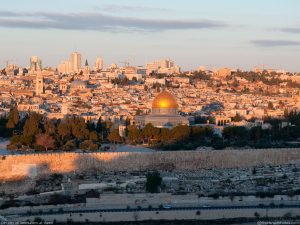How This Year’s Seder Differed From Years Past
During this year of the plague my family celebrated Passover via Zoom, a video conferencing platform. We connected over twenty households with people ranging in age from eight months to ninety years, from coast to coast and across the Pacific to Japan, where Seder was celebrated at breakfast. It was wildly chaotic – which is fairly usual – and joyous. During these days of isolation, it was wonderful to see far-flung relatives’ faces.
Without the limitations of anyone’s dining room table there were also more people than have ever attended one of our family Seders in real time. And it was all-inclusive: one brother’s mother-in-law joined us from California and a nephew-in-law’s mother joined from New York. The women had never met prior to this event; it was a mash-up of families.
It was also easy to attend. Under normal circumstances, I probably would not have driven to New York, and I would have missed my eight-year-old grandniece reciting the Four Questions in Hebrew and English for the first time. It was a delight to hear her ask, Why is this night different from all other nights? I’m glad I was there.
Exodus is an old and ongoing story of refugees fleeing untenable circumstances, a story of people uprooted, seeking a new home.
But perhaps more than ever, this year was especially poignant. It’s not just the ancient story of the Jews fleeing Egypt we remember these days, but all people uprooted all over the world, seeking freedom from war, terror, and political-, economic-, and environmental injustice, to name a few.
From Peterborough, New Hampshire to Tokyo, Japan, members of my family are sheltering in place. So far, we are all well. We’re also well off. We have homes in which to stay safe; we have work we can perform via our access to the internet. All in all, we have the essentials, and then some.
The Ten Plagues That Pharaoh Ignored
Every year, I listen to the story of the Jews’ escape from Egyptian bondage as retold at the Seder table, where we eat bitter herbs to remember the bitterness of oppression. And when we remember the ten plagues visited upon the Egyptians when Pharaoh refused to free his slaves, we spill a drop of wine as we name each of them: Blood, Frogs, Bugs, Wild Animals, Pestilence, Boils, Hail, Locusts, Darkness and the Slaying of the First Born.
This year, the plagues sounded to me a lot like the devastation of climate change.
BLOOD: Rivers haven’t turned to blood, but they’re contaminated with domestic waste, insecticides, herbicides, food processing waste, livestock waste, volatile organic compounds, heavy metals, and chemical waste. In Vermont, phosphorous runoff from agricultural and human waste causes toxic algae bloom.

FROGS: In Vermont, it’s not frogs that plague us, but invasive plants: Japanese knotweed, purple loosestrife, Oriental bittersweet, buckthorn, giant hogweed, cow parsley, and multi-flora rose, to name just a few.
BUGS: disease-bearing mosquitoes and ticks have sickened many and frightened others into staying indoors. The emerald ash borer and wooly adelgid threaten to lay waste our forests.
WILD ANIMALS: Given the precipitous decline in civil discourse, we’ve come to consider those with whom we disagree in this category.
PESTILENCE: This year, it’s Covid-19.
BOILS: Cancers from environmental toxins, air pollution, and diseases of excess.
HAIL: Storms of increasing violence occurring with increasing frequency all across the globe, including but not limited to: mammoth forest fires, torrential rains and subsequent mudslides; hurricanes unimpeded by coastal wetlands; increased frequency and spread of tornadoes and super storms, sea-level rise and flooding.
LOCUSTS: Stink-bugs and bed bugs come to mind, but they’re minor inconveniences compared to drought, which has imperiled industrial agriculture, perhaps a plague in itself.
DARKNESS: Imagine the lights go out. And the air conditioners, freezers, refrigerators, elevators, water pumps, heat pumps, phone service, the world wide web. No ice for your Martinis. No Martinis. That would be darkness in modern times.
And then the children die, including yours and mine.
The Hope of Jerusalem

The Seder ends with the hope that next year, we’ll meet in Jerusalem. As a child, I understood this literally: that somehow we’d all reconvene in the ancient city that has been destroyed, besieged, attacked, captured and recaptured in a war that’s been on-going for millennia.
Only now do I understand this wish metaphorically. Jerusalem means City of Peace, a holy place to Jews, Christians and Muslims. But peace, as I’ve come to understand it, isn’t a place that can be geo-tagged. It’s a metaphysical place, not a geographical one. It’s a place we create by thinking of others as well as ourselves, by practicing generosity, and by being kind to ourselves, to each other, and to the earth that sustains us.

I publish weekly posts intended to educate, entertain and irritate. Thanks for reading Living in Place.
Bravo. Excellent way to relay the text to today. Xoxo
While your list of current plagues is realistically alarming, scary and pending, your beautifully descriptive Worldwide Family Seder internet celebration, was indeed a joyous and hopeful recounting.
No matter what ailment plagues us; we must try to be resilient and think creatively to overcome the obstacles we increasingly face in our world today.
Thank you for sharing Deborah.
Much appreciated, especially as counterbalance to folks angrily demanding to return to work immediately. Thinking of young Anne in the attic. No curbside pickup for food, no internet. Such rich pondering from your post. Gratitude.